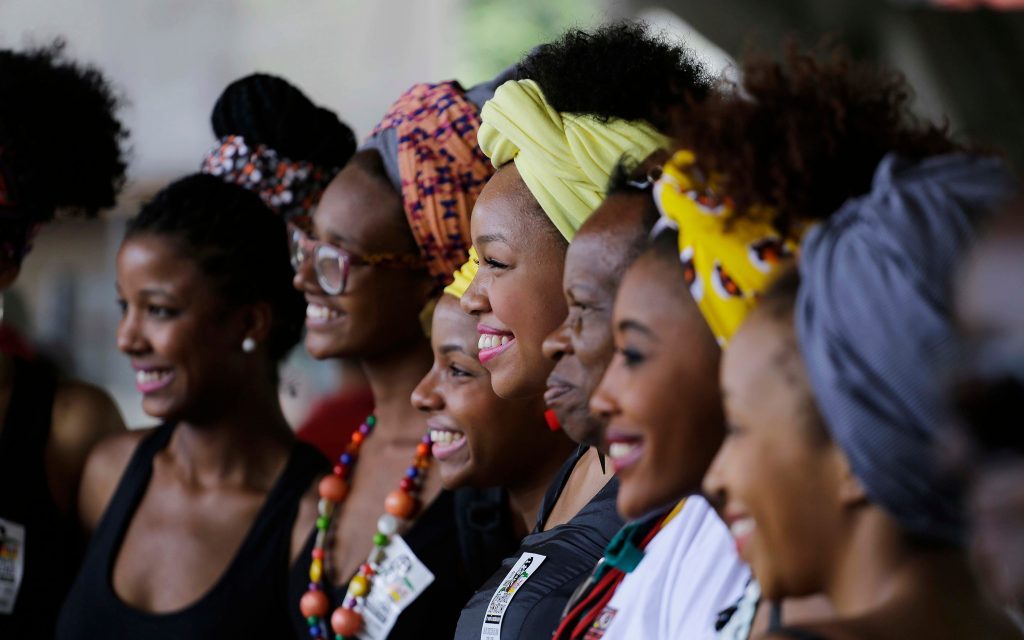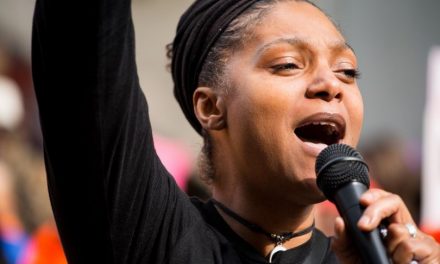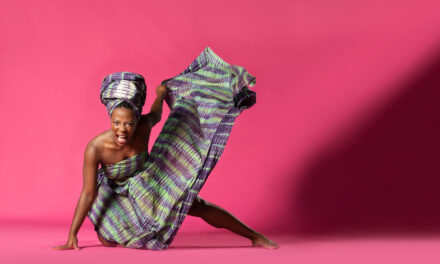Two decades and a half ago, representatives, activists, organizers and world leaders supported the Beijing Platform for Action (BPfA) towards emancipating women and girls from all forms of oppression. This was further affirmed in March 2020 during the 25years review by the United Nations. Similarly, these leaders threw their weight behind Hillary Clinton’s declaration that “women’s rights are human rights, and human rights are women’s rights.”
In the year 2020, several years after all the many declarations, protocols, legislations and policies like the Convention on the Elimination of all forms of Discrimination Against Women (CEDAW), BPfA, United Nations Declaration of Human Rights (UNDHR) et al, internationally not much has changed. The Maputo Protocol which “guarantees comprehensive rights to women including the right to take part in the political process, to social and political equality with men” has not changed much for Ghana in the quest for political equality.
Meanwhile, women’s representation in boardrooms and political spaces remain a fallacy but the lower representation of women in elected offices is not the result of a lack of qualified women, but the existence of systems and structures which continues to hamper women’s attempts to run, win, serve and lead at equal rates to men. To this end, several institutions, organizations and movements have put policies or legislations in place aimed at ensuring women are fully represented in leadership at all times. The Affirmative Action positions of the Trades Union Congress-Ghana (TUC-GH) and the National Union of Ghana Students (NUGS) are examples of such.
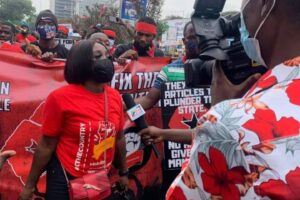
Women leaders of the Fix The Country Movement in Ghana. Photo Credit: GhFixTheCountry
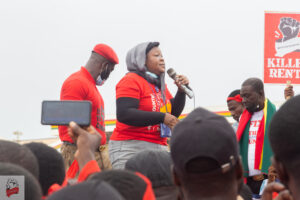
It is everywhere
As a former elected student leader and the immediate past executive of the National Youth Council of the TUC-Gh, I lived and experienced the struggles women go through to use their voices in representing other women and girls politically. I would highlight here that the existence of the Affirmative Action position as women’s commissioner in the National Union of Ghanaian Students is what made me an executive in the 2008/9 team. Sadly, at the time, I was the only woman amongst 15 executives to say the least but for the AA position, there would be no woman in the said year.
Student Unions in Ghana date back to 1965 where the movement has achieved many successes including the institution of the GetFund and Students Loan Trust fund. It is worthy of note also that a vast majority of student leaders end up in national politics either as political party activists, Members of Parliament, Ministers of State or social commentators.
According to Mary Wandia, “the past 15 years have seen an increase in women’s participation at the highest levels of decision-making in Africa. However, a deeper analysis of electoral and government structures reveals inherent barriers to transformative leadership”. For women gunning for political offices at any level, men who almost control the electorates and the finances to materialize these dreams mostly take decisions around who is elected, appointed or nominated. To change the terrain that disadvantages women in addition to the cultural and traditional barriers, we need to consider mentoring and supporting women and girls by women.
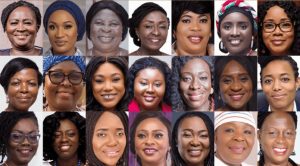
Political participation and women in Ghana
Way forward
We need an unending line of girls and young women holding the ‘cloth’ of other women in national politics side by side to be guaranteed of a future with an inclusive political leadership. With more and more women coming out to vie for student leadership positions, it is important and necessary to establish mentorship and coaching programs that seek to support their leadership journey in the public realm. As Sylvia Tamale puts it, we need to work to “diffuse the ideology through cultural instruction, socialization, religion, law, and policy under the aegis of patriarchal gender that seeks to make women learn that their space is in the private domain, while men’s places are in the public realm”.
The system and practice of god-‘fatherism’ where an aspiring politician needs someone to hold their hands on the field of play to be accepted and especially for purposes of campaign financing is a hindrance for men. Sadly, the majority of these godfathers are men who know the aspirant or the aspirant knows in a charade popularly called “Whom you know or who knows you”. This system is well present within the space of student politics where there is a high involvement of national political parties’ apparatus in supporting candidates through their campaigns with finances. Nevertheless, for my part in 2008, I would not know how to raise funds to support my campaign when I was vying for the position of Women’s commissioner of NUGS.
Today, most of the leadership models functioning presently available do so within a framework of patriarchy, patrimony, and the ‘old boys club’ network. Subsequently, according to Wandia, “women’s voices are generally absent from the corridors and halls of power where important decisions that affect their lives are taken – be it in national assemblies or within the African Union”. Similarly, as it has been recognized that financing is a major hindrance for women aspiring for political offices, we need a pool of women who will support young women with resources in their campaigns.
The second important thing to note is the male dominance in choosing delegates to the congresses of these student Unions. This is because; men hold key positions within Student Representative Councils (SRC) from Presidents, Local NUGS President & Secretaries who mostly reserve the right to choose delegates. However, to recognize that, these executives are the Central Committee members of the NUGS. When these ‘hands’ are against a candidate, they choose delegates who represent their interests to the congresses. At congress grounds, deals are brokered to determine the sacrificial lambs from the winning candidates too. These negotiations are led by SRC Presidents and Local NUGS Presidents to determine who is crowned as a leader.
It is no lie that women leaders around the world have “proven to be effective and successful leaders, bringing a lived perspective to inform both the process of governing and the development of policy; but, they remain underrepresented up and down the ballot.” As a society, we must take intentional actions and “implement structural changes so women can exercise their rights to run, win, serve and lead”.

